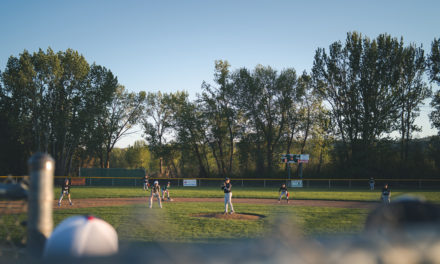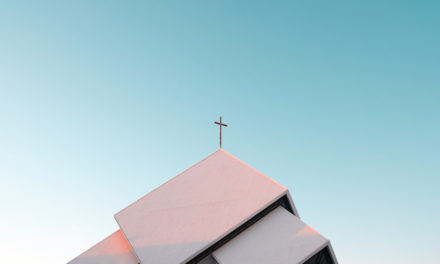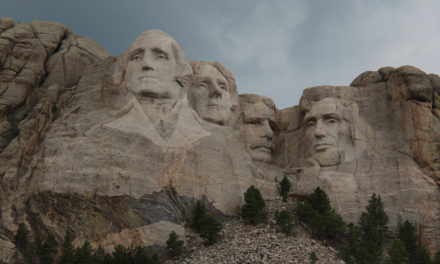I want to talk about race for a second. I heard Senator Mitch McConnell, R-Ky, recently lament the failure of our nation to overcome our racist tendencies, even though it’s been 56 years since the passage of the 1964 Civil Rights Act, noting that “we are still wrestling with America’s original sin.” He’s right, of course. He also said that we have a long way to go. He’s also right about that.
I’m white. I grew up in a lily-white Chicago suburb in the 1960s and 70s. I remember hearing my grandfather use the “n” word a lot. I’m sure my own father was influenced by that, although I don’t remember him using such language in our home. My family moved from the city to the suburbs as part of the “white flight” exodus in the late 50s. There were no African Americans in our little bedroom community, and I had little or no contact with any blacks until high school. I’m convinced some form of racial prejudice was sort of “baked into the cake” of my own upbringing and experience.
As fate would have it, my community was one of the first northern school districts in the country to implement court-ordered desegregation. That meant that black students were bused to my high school from nearby towns. Did that rock my world. Yes. I’d be lying if I told you that my early interactions with my fellow classmates of color were anything but tentative.
I remember the angst I felt the first time I brought home a black friend. Would my parents react negatively? Everything went fine, but I still remember it to this day. I’ve never stopped to consider what my friend was experiencing, although he seemed a lot more relaxed about it than I did. Over the course of my high school years, I went from feeling a certain amount of “white fright” at the prospect of mingling with blacks, to a point where I should have been all along, comfortable with people of whatever color or ethnic persuasion.
I remember Lloyd, the centerfielder on our baseball team, who could hit the ball a country mile and had an easy smile and a big heart. There was Diane, whose prowess in dramatic interpretation earned her a state championship in speech. I now wonder whether the intensity that made her so successful was born of her own experiences as a young black teenager growing up in an unperfect world. There was Fran, the cheerleader, who was everyone’s best friend. Eric, a footballer, became one of my long-time friends from the moment he and I started doing the morning announcements together over the school’s PA system. Joni, another speech team member, spoke at our graduation.
I apologize if this sounds condescending or like one of those “I have black friends” justifications for how “woke” I am. All I am trying to say is that looking back, it’s easy to see how my high school experience helped overcome a lot of my own ignorant prejudice.
I’ve noticed some progress in my own life as an adult. I’ve trained my kids to judge people by their character, not their skin color, and they’ve not had the inner struggles with prejudice that I dealt with as a child. Yet I’m aware that I am still a work in progress. For example, why do I end up attending mostly white churches? Is that a function of neighborhood demographics or a residual sense of wanting to stay with “my own kind?” I don’t have a good answer for that.
With all the progress I’ve seen over the course of my 65 years on earth, both in America and in my own heart, there is still, as Sen. McConnell said, much work to be done.
Why is that? Why is our nation’s “original sin” still with us? Why is my heart not completely cleansed of racism?
The answer is rather simple. I am a sinful person – as we all are – and I have to deal with racism in my own heart on that basis. To confess my sin and repent properly, I need to understand a few things.
First, as a former colleague, who is black, reminded me one time, there is only one “race” – the human race. “Race” as a way to distinguish between peoples of different skin color is a recent construct. It only came to be in the last five minutes or so of human history.
Second, the Bible promises that heaven will be filled with “…a great multitude that no one could number, from every nation, from all tribes and peoples and languages…” (Revelation 7:9) There are no divisions in the Kingdom based on skin color, so making such distinctions here on earth is contrary to God’s design for us.
Third, Jesus promised to deliver the oppressed and open the eyes of the blind. In the book of Luke, chapter 4, verse 18, Jesus is in a synagogue quoting from the book of Isaiah, where he reads:
“The Spirit of the Lord is upon me, because he has anointed me to proclaim good news to the poor. He has sent me to proclaim liberty to the captives and recovering of sight to the blind, to set at liberty those who are oppressed, to proclaim the year of the Lord’s favor.”
Then, in a “drop-the-mic” moment, Jesus sat down, and with all eyes on him, said “Today this Scripture has been fulfilled in your hearing.” What a moment that must have been.
Those oppressed by racism gain their liberty by trusting in Jesus. He doesn’t promise to eradicate the oppressors or eliminate the evil of racism. But He promises freedom in the midst of it. That’s powerful.
But what dawned on me as I read that verse in the context of racism is that I am the blind person who needs his eyes opened. On a daily basis.
I’ll never really understand the experiential reality of being black in America. Reading books, articles, social media posts and interviews from black Americans only goes so far in reminding me how woefully short I come as an individual whose skin happens to be a shade lighter than those other folks.
What I do know, however, is that the answer has always been, and continues to be, found in Jesus. May He always bring His promised liberty to my African American friends and countrymen who follow Him from the damage that has been done to them because of racism. And may He also forgive my own participation in that sin, while opening my blind eyes and those of all of us who need to put our shoulder to the plow in doing the hard work of eradicating the scourge of racism from our country.
Photo from Shutterstock






